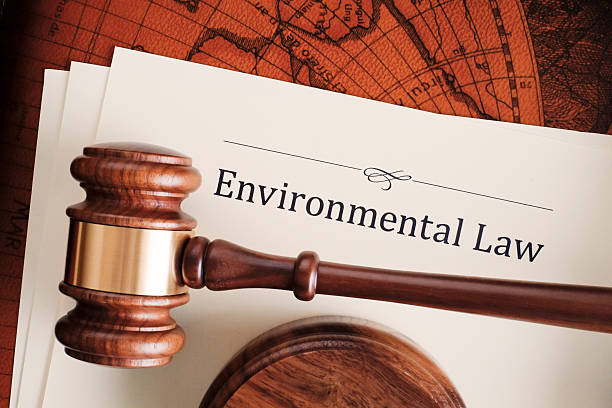In recent years, the global community has grown more aware of the impact of business practices on the environment. In Nigeria, this awareness is sparking a shift toward sustainable business practices backed by environmental laws. But what does this mean, and how can businesses operate in a way that protects Nigeria’s rich natural resources for future generations?
What is Environmental Law?
Environmental law consists of the rules and regulations created to protect the environment. In Nigeria, these laws are designed to safeguard land, air, and water resources, reduce pollution, and promote sustainable practices. The goal is to ensure that economic growth does not come at the expense of environmental health.
Key Environmental Laws in Nigeria
Nigeria’s environmental laws are enforced by various agencies and are governed by key legislations, including:
1. National Environmental Standards and Regulations Enforcement Agency (NESREA) Act, 2007: NESREA is responsible for enforcing environmental laws across Nigeria, especially in industries that could harm the environment.
2. Environmental Impact Assessment (EIA) Act, 1992: This act requires businesses to assess the environmental impact of their projects. Companies must conduct an EIA and gain approval before starting activities that could significantly affect the environment.
3. Harmful Waste (Special Criminal Provisions) Act, 1998: This law prohibits the importation, storage, and dumping of harmful waste in Nigeria.
4. Nigerian Urban and Regional Planning Act, 1992: This act promotes sustainable land use planning and requires that urban development’s consider environmental effects.
The Importance of Sustainable Business in Nigeria
Why Sustainable Business Matters
Sustainable business practices go beyond just compliance with laws; they are essential for long-term growth. Nigeria is blessed with abundant natural resources, from oil reserves to forests and wildlife. However, without sustainable practices, these resources could be depleted or irreversibly damaged.
Sustainability helps in:
Protecting Natural Resources: By using resources responsibly, businesses help conserve them for future generations.
Reducing Pollution: Sustainable practices reduce waste and emissions, helping to protect Nigeria’s land, air, and water.
Supporting Local Communities: Sustainable businesses consider the social impact of their operations, benefiting the communities around them.
Benefits for Businesses
Sustainability is not just good for the environment; it’s also beneficial for businesses.
Companies that adopt sustainable practices often experience:
- Cost Savings: Reducing waste and improving energy efficiency lowers operational costs.
- Increased Brand Value: Customers today prefer eco-friendly companies, which can improve brand reputation.
- Compliance and Reduced Legal Risks: Following environmental laws helps businesses avoid fines and legal issues.
Practical Steps for Nigerian Businesses to Become More Sustainable
For Nigerian businesses, the journey towards sustainability starts with small but impactful changes. Here are some practical steps companies can take:
- Conduct Environmental Audits
An environmental audit assesses the impact a company’s operations have on the environment. By identifying areas of high resource usage and waste production, businesses can find opportunities to reduce their environmental footprint.
- Implement Waste Management Strategies
Businesses can adopt recycling programs, reduce packaging, and find ways to reuse materials. Proper waste management reduces pollution and conserves resources, helping companies meet environmental standards.
- Use Renewable Energy
Switching to renewable energy sources, such as solar or wind, reduces a company’s reliance on fossil fuels. Renewable energy options are increasingly affordable and can help businesses cut energy costs in the long run.
- Set Sustainability Goals
Establishing measurable sustainability goals allows businesses to track their progress. For instance, a company might aim to reduce its carbon emissions by 20% over five years or recycle 50% of its waste.
- Educate Employees and Stakeholders
Creating awareness about environmental issues among employees and stakeholders is essential. Training staff on sustainable practices helps them understand their role in the company’s environmental efforts and encourages them to contribute to the company’s goals.
- Engage with Local Communities
Businesses can support environmental projects in their communities, such as tree planting, clean-up campaigns, or educational programs. Engaging with local communities helps build trust and demonstrates a company’s commitment to environmental stewardship.
Challenges of Sustainable Business in Nigeria
Despite the benefits, adopting sustainable practices in Nigeria comes with its challenges. Some of the common obstacles include:
- Lack of Infrastructure: Access to recycling facilities, renewable energy sources, and waste management services can be limited, particularly in rural areas.
- High Costs: The initial costs of implementing sustainable technologies, like solar panels or energy-efficient machinery, can be high.
- Limited Awareness: Not all businesses and consumers are aware of the importance of sustainability, making it harder to drive widespread change.
- Weak Enforcement: Although environmental laws exist, enforcement can be inconsistent, which may reduce their effectiveness.
CONCLUSION
Environmental laws and sustainable practices are vital for Nigeria’s future. By complying with regulations and adopting eco-friendly practices, businesses can contribute to a healthier environment, enhance their reputation, and attract more customers. As Nigerian companies recognize the long-term benefits of sustainability, they’ll help pave the way for a greener, more resilient economy.
Making the shift may seem challenging, but even small steps can make a significant impact. Sustainable business isn’t just good for the planet—it’s also good for business. By working together, Nigerian businesses can make a lasting difference in building a sustainable future for all.










